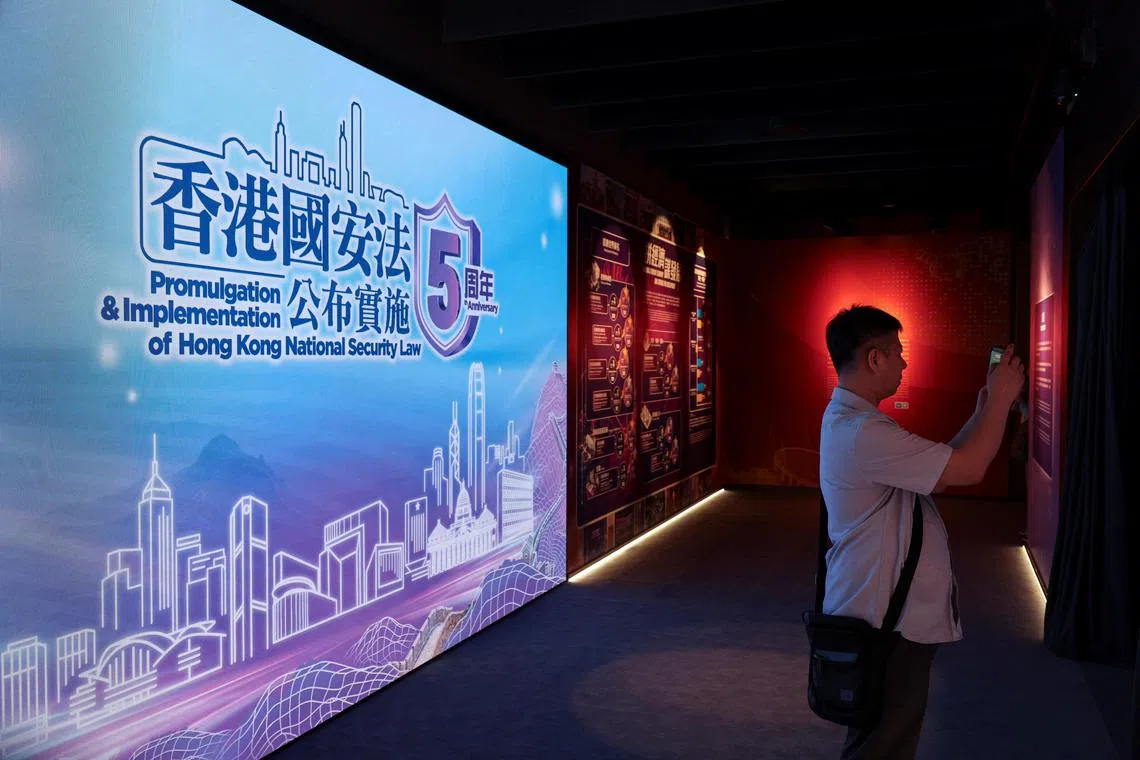For subscribers
Five years of ‘no drama’ politics: Has Hong Kong made it count?
The national security law has given the city’s leaders unprecedented power, but they haven’t used it to make bold reforms to raise revenues or improve education.
Sign up now: Get ST's newsletters delivered to your inbox

A visitor takes photos at the National Security Exhibition Gallery ahead of the fifth anniversary of the national security law in Hong Kong, on June 20.
PHOTO: REUTERS
- Hong Kong's pro-democracy figures are notably absent following the 2020 security law, with the last major opposition party planning to disband.
- Hong Kong sees a financial revival, with IPOs reaching their highest level since 2021, as Chinese firms seek funding closer to home, and investors regain confidence.
- Despite stability, bold reforms are lacking in areas like taxation and education, raising questions about whether the trade-off of suppressed dissent is worth it.
AI generated
Conspicuously missing from most discussions about Hong Kong’s national security crackdown is an awkward truth: The democratic campaigners it swept up were hardly saints.
To say such things these days is perhaps heretical in progressive circles, especially in the West, where the protests and political crisis that led to Beijing’s 2020 security law



